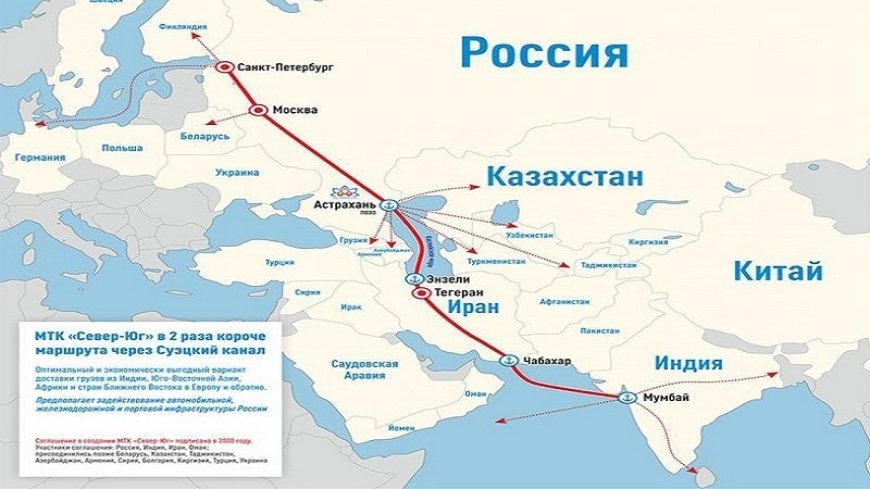The North-South Transport Corridor is a de facto alternative to the Suez Canal
The "North-South" international transport corridor is a de facto alternative to the Suez Canal. Russian Deputy Prime Minister Marat Khusnulin announced this in an interview with aif-ru. According to him, there is great progress in the construction of the "North-South" transport corridor.

The "North-South" international transport corridor is a de facto alternative to the Suez Canal. Russian Deputy Prime Minister Marat Khusnulin announced this in an interview with aif-ru. According to him, there is great progress in the construction of the "North-South" transport corridor.
" During the last year, big changes happened to us. Agreements have already been signed with Iran and Azerbaijan regarding the extension of the railway to the ports of the Persian Gulf. Turkmenistan's partners have started building a road along the Caspian Sea in the direction of Iran, the so-called eastern bypass of the Caspian Sea, and plan to work in the direction of Kazakhstan," he said.
In its turn, Russia is synchronizing the construction projects with its partners in Kazakhstan. The Russian Deputy Prime Minister emphasized that the international transport corridor project is a real alternative to the Suez Canal. Russia, where there is a powerful water artery, the Volga River, which opens a convenient way to the Caspian Sea, must, of course, develop the rapid transportation of goods from one mode of transport to another.
The international agreement on the " North-South" transport corridor was signed on September 12, 2000 in Saint Petersburg.
The project is a 7.2 thousand km long transport corridor, which should provide a connection between the Baltic region and India via Iran and Russia. The annual capacity of the corridor is 20-30 million tons of cargo. Moreover, Yerevan became a full participant of the agreement on the "North-South" corridor back in 2004.
Armenia can join the corridor with its project of the same name, the "North-South" highway. In this way, goods from India can be transported to Iran, then to Armenia, and from here to Russia (through ports or "Upper Lars" checkpoint). This will open opportunities for Armenia to cooperate with other countries participating in the agreement (Russia, Iran, India, Oman, Kazakhstan, Belarus, etc.) in terms of infrastructure development, international transportation, simplification of border crossing procedures and other issues.













































